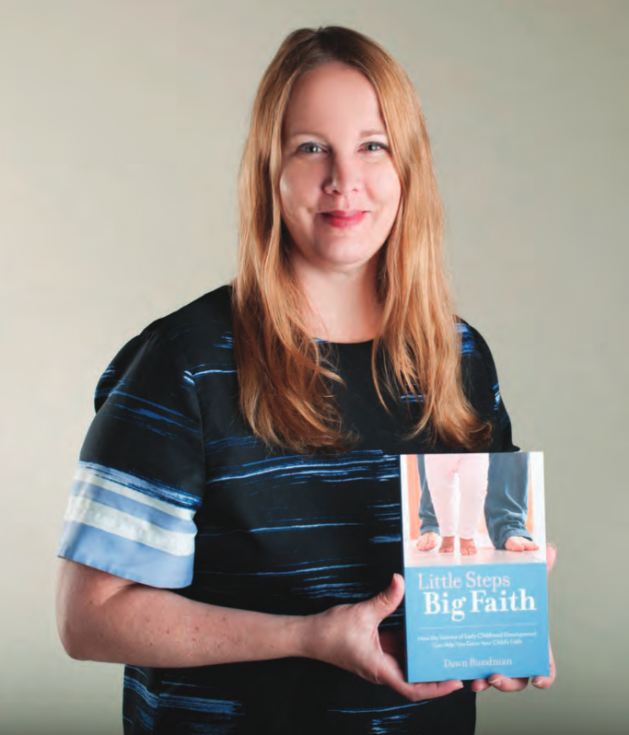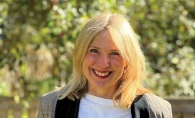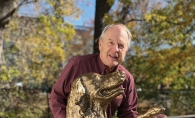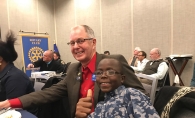
Experts know that by age three, children have likely heard tens of millions of words. This is one reason why developmental psychologist Dawn Rundman wrote a book that combines her expertise about the science of child development with practical ways to help Christian parents grow faith in children starting at birth or adoption. This Edina mother of two understands life is busy. Her book, Little Steps Big Faith helps parents apply scientific research in ways that aren’t overwhelming and fit with today’s busy family schedules.
Oftentimes, parents think faith formation begins during the preschool years or later. But by then, your child has already heard so many words. If they haven’t heard about God or any language about God, Rundman thinks parents might be missing an opportunity. “Young children need to hear language in order to understand and speak it,” Rundman says. “So why wouldn’t we start using faith language from the start?”
Even parents with no depth of religious knowledge or background still understand the benefits of faith values within families. According to Rundman, results from the Search Institute about developmental assets in children show that buffers from common social stressors can come from involvement in a faith community. This is true across all faiths. “Connection to a faith community helps promote healthy development,” Rundman says.
In her book, Rundman provides examples of practical rituals that help build family closeness and grow faith. “The physical act of blessing a child before they go to bed” is one way according to Rundman. “Evidence suggests that an experience right before you go to sleep makes it go deeper... Spoken words combined with gentle physical touch is a simple, faith based ritual that parents, grandparents, even the babysitter can do so that children hear words of blessing as the last words they hear before going to bed.”
In the morning, try saying, “This is the day the Lord has made.” If faith is going to be a part of your family life, it makes sense to greet your child with a blessing. Or practice a breakfast prayer or a prayer that can be said in the car when dropping off the kids at daycare.
Musical experiences are also powerful in the life of a child. Rundman says that elderly dementia patients who don’t speak can often still sing a hymn they learned as a child. “Different neural pathways are formed when you sing to a child,” she says. “You can begin laying that groundwork so early in life and it’s powerful.”
Rundman has also created resources and faith formation curriculums for church communities. And when it comes to finding a church, Rundman says it’s okay to be picky or to leave a church and go someplace different. She hopes families find a church community that affirms parents even if those parents don’t yet know what to do when it comes to faith formation for their kids. She suggests parents simply start early if they can. Even if it’s just a few bible stories like the 2-page, 60 words or less stories offered in her book so parents can say, “I read my kid a bible story today. Yay.”
Learn more at http://www.dawnrundman.com/









